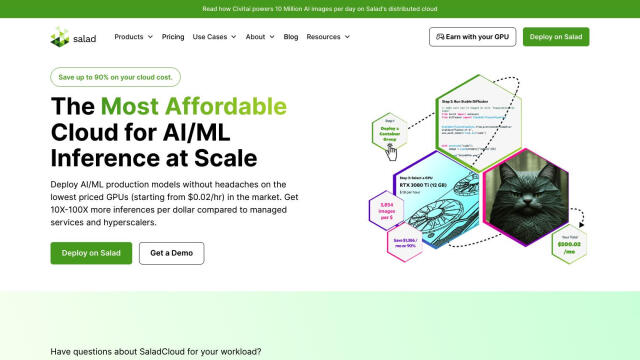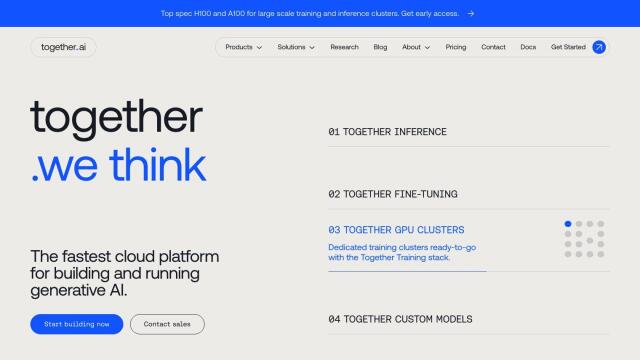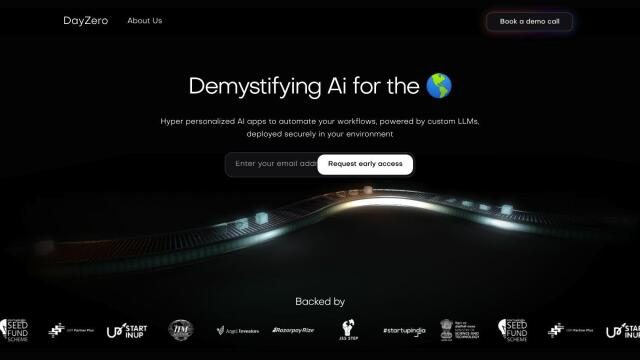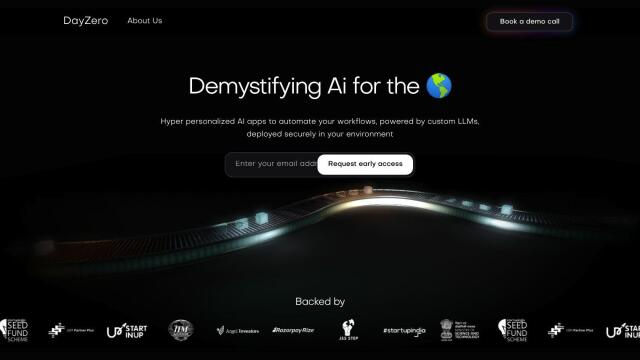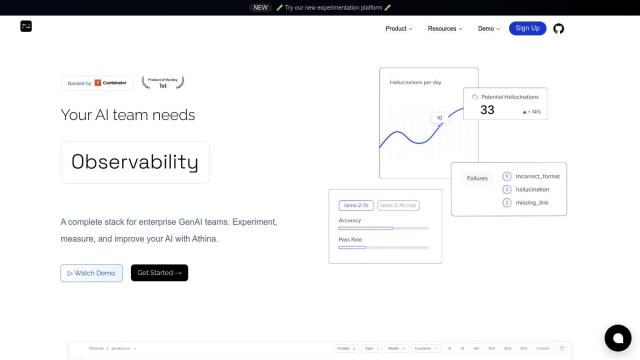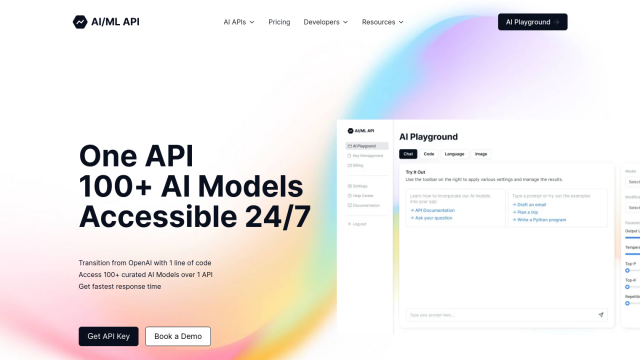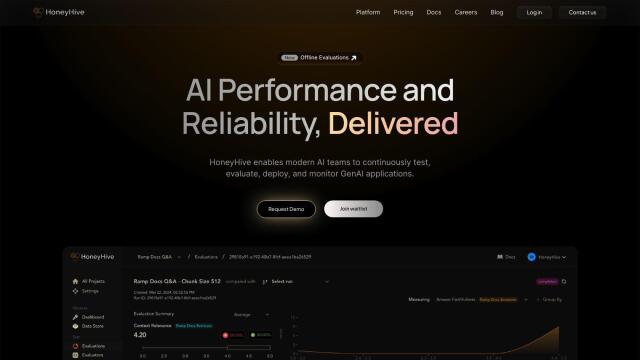Question: I need a platform that can handle infrastructure for AI model deployment, including servers and GPUs.

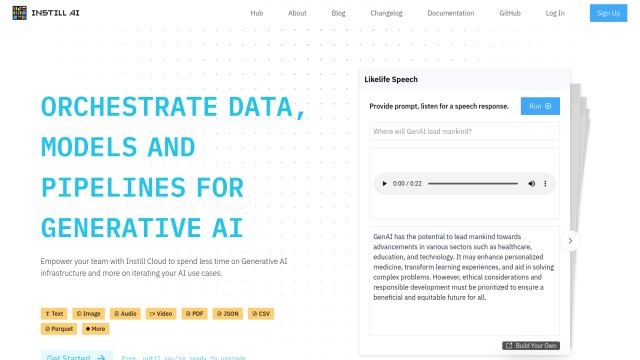
Instill
The first project, Instill, is a no-code/low-code AI platform that makes it easy to deploy AI models. It has features like speech responses, webpage summarization, and object detection, and can generate dynamically inference API endpoints. Instill handles infrastructure, including servers and GPUs, and has SDKs for Python and TypeScript, so it's flexible and scalable. It also has tiered pricing, including free and enterprise plans, so you can pick the right level of service.


Anyscale
Another interesting project is Anyscale, which offers a platform for building, deploying and scaling AI applications. It supports a variety of AI models, has smart instance management, heterogeneous node control and GPU and CPU fractioning for efficient resource use. Anyscale is based on the open-source Ray framework and has native integrations with popular IDEs, persisted storage and Git integration, so it's a powerful option for AI development and deployment. It's got a free tier and customized plans for bigger businesses.

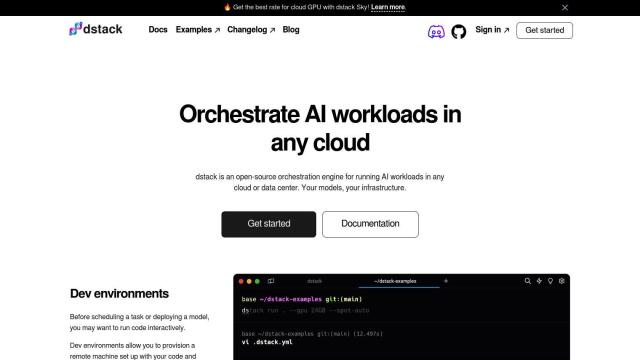
dstack
If you're looking for something cheaper, dstack is an open-source engine that automates infrastructure provisioning on a variety of cloud providers and data centers. It supports a variety of cloud providers and on-prem servers, making it easier to set up and run AI workloads. dstack offers several options for deployment, including open-source self-hosted and enterprise self-hosted versions, and has extensive documentation and community support, so it's a good option for AI model deployment.

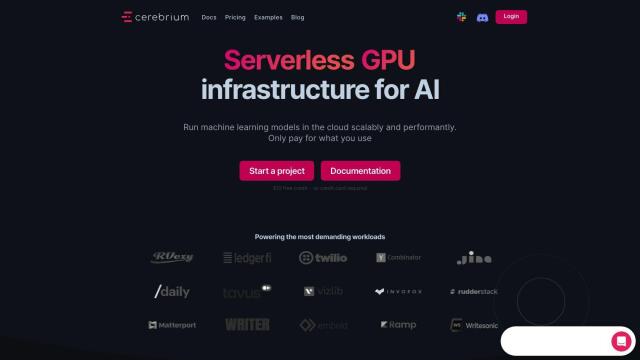
Cerebrium
Last, Cerebrium is a serverless GPU infrastructure for training and deploying machine learning models with pay-per-use pricing that can cut costs dramatically. It offers GPU variety, infrastructure as code, volume storage and real-time monitoring and logging. Cerebrium can be used with your own AWS/GCP credits or on-premise infrastructure and offers tiered plans, so it's a good option for AI model deployment that's scalable and cost effective.



